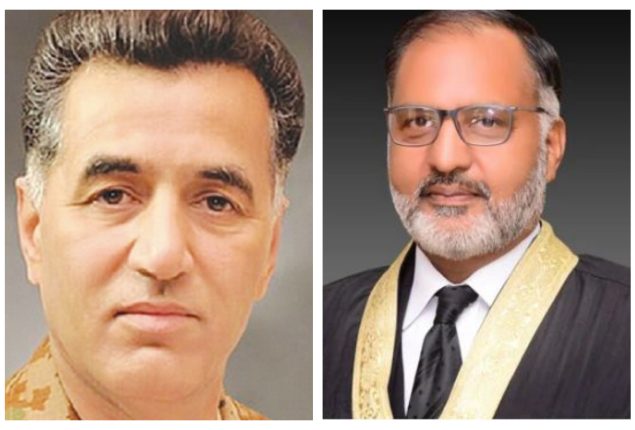1. Faiz Gen
Faiz Gen Special’s rejection of the accusations made by former IHC Judge Shaukat has generated a lot of debate in Pakistan. High-level judicial and governmental procedures were the target of Judge Shaukat’s allegations, which prompted Faiz Gen Special to respond bluntly and directly. The details of the accusations, the rebuttals, and the public’s reaction to this momentous legal and political event will all be covered in this article. This episode raises important questions about public accountability and judicial integrity. Prominent Army Faiz special dismisses charges of former IHC judge Shaukat.
2. Special statement .
a.Breakdown of the Official Statement:
Examine Faiz Gen Special’s denial of the accusations. Highlight his main points while mentioning any legal precedents, facts, or references he made.
b . The legal basis for his rebuttal:
Describe the legal principles he cited in his defense, including any precedents or legal standards he cited. He may have, for example, denied the allegations on procedural grounds or claimed that the charges were without merit.
c. Function Media
Explain how Faiz Gen Special’s rejoinder was presented by the media and whether any bias or particular narrative focus was present.
3. Famous faiz Gen IHC judge Shaukat
We need to think about the possible effects on judicial integrity and credibility, Faiz Gen Special and former IHC Judge Shaukat. High-profile charges inside the judiciary have the potential to have an impact on public opinion and the trust that the public has in legal institutions. Such instances have an impact on judicial integrity and credibility in the following important areas:
1 .impartiality and fairness
Openness judiciary:
When accusations implicate members of the judiciary, issues of impartiality and openness take center stage. Because the public depends on the court to correctly interpret and enforce the law, any sense of prejudice or internal strife can undermine confidence.
2. Judicial Accountability
Function of Ethical :
Whether or not they are verified, accusations of wrongdoing draw attention to the moral duties of judges. Establishing clear guidelines and accountability procedures helps stop these conflicts from starting or getting worse and shows the public that the judiciary values honesty.
The effects of internal accountability systems Effective judicial accountability systems, such as independent oversight committees, can promote openness and reassure the public that all judges follow the law and ethical principles.
3. Reforms in the Courts
Promoting Systemic Reforms: Well-publicized disputes frequently draw attention to areas that require reform. To avoid such conflicts in the future, the judiciary may take action to resolve supervision, transparency, or ethical standards gaps.
Enhancing Public Involvement with Judicial Procedures: A greater demand for impartial and open proceedings might result from a greater public understanding of judicial procedures, which eventually upholds the efficacy and integrity of the judiciary.
4. Judicial Integrity’s
a. Awareness:
Public disagreements in the judiciary can lead to discussions about the structure of the legal system, which in turn can educate citizens about their rights and the legal procedures that oversee judicial accountability.
یہ بھی پڑھیں: 2024 Rabil Ul Awal Exclusive 12 Rabil Ul Awal Dates, Days, Events




